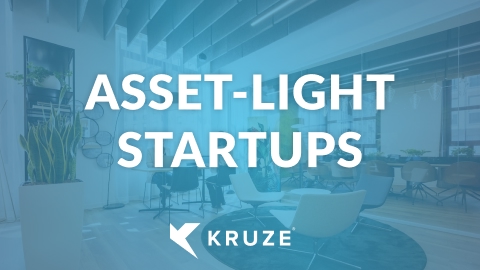
NOLs and R&D tax credits are tax benefits that can be very valuable to startup companies, but companies need to plan to take full advantage of both types of deductions. NOLs (Net Operating Losses) are created when a startup is losing money, and become useful when the company starts generating a tax profit. An NOL can be carried forward to future years, benefiting a startup by reducing its taxable income after it swings into profitability. The Research and Development (R&D) Tax Credit is available to startups that are developing new or improved products or processes, and can be used by unprofitable startups to reduce their payroll tax expense, cutting their burn rate even when they are unprofitable.
NOLs and Research and Development Tax Credits Compared
| NOLs | R&D Tax Credits | |
| Tax Jurisdiction | Federal, many states | Federal, many states (some states have different rules) |
| How Are They Created? | When company has tax loss years | When company conducts qualified research |
| How Are They Used? | Offsets taxable income when company has higher taxable revenue vs. expenses (for profitable companies) | Offsets payroll taxes if qualified (before a company is profitable), or income tax liability |
| How Much Can Taxes Be Reduced? | Up to 80% of a firm’s yearly profits for 2018 & future NOLs; 100% for 2017 and prior NOLs | Up to $250,000 in payroll taxes (increasing to $500,000 for tax year 2023) |
NOLs can help startups lower taxes
The rules around tax treatment for net operating losses (NOL) were substantially changed by both the 2017 Tax Cuts and Jobs Act (TCJA) and the 2020 Coronavirus Aid, Relief, and Economic Security (CARES) Act. Under the current rules, in 2021 and later tax years, NOLs can be carried forward indefinitely to offset a startup’s future tax liability, but are limited to 80 percent of each year’s net income.
At a high level, if your startup loses money one year, you can apply those losses (the NOLs) to your taxable profits in the subsequent year(s). Since most startups lose money for a number of years, these losses can stack up and become quite helpful once the company starts generating taxable income.
Let’s look at a simple example. In 2021, a startup had an NOL of $2 million. In 2022, that startup began generating net income and earned $5 million. The carryover limit of 80 percent on the $5 million in income in 2022 is $4 million. So the full loss of $2 million can be carried forward from 2021 to 2022, and taxable income in 2022 is reduced to $3 million.
What happens with a bigger NOL? Assume the startup in 2021 has an NOL of $5 million, and in 2022 earns $6 million in income. Eighty percent of $6 million is $4.8 million, which is less than the available NOL of $5 million. The company could reduce its taxable income by $4.8 million to $1.2 million in 2022. In addition, the company would have a $200,000 carryforward (which remains on the balance sheet as an asset) that could be used in 2023 or future years.
How spending money on innovation reduces taxes
In general, expenses reduce the taxable income of a company – and research has been no exception. If you spend more money on expenses than your revenue, and your startup loses money, you owe no income tax (and you can even generate the NOLs we just discussed).
But there is a second way spending money on research and development can reduce taxes. The government wants to encourage R&D spending in the US, so they created R&D tax credits that can be applied against payroll taxes – taxes that all companies with wages pay, even the unprofitable ones! In fact, Congress so wants to encourage development activities in the US that the maximum credit was doubled to $500,000 per year through the Inflation Reduction Act of 2022 (this increased credit starts in tax year 2023).
Unfortunately, a different tax bill had the opposite effect. In 2017, the Tax Cuts and Jobs Act requires deferral of R&D expenses instead of immediate expensing. Instead, these expenses would be capitalized and then recognized over 5 years for US-based R&D expenses, with a mid-year convention in the first and last tax years. This particular law doesn’t take effect until the tax year 2022 – so Congress still has time to stop it from hurting startups, and our guess is that it will be either be deferred to a future tax year or eliminated altogether.
One important nuance to recognize is that a company has both GAAP financial statements, with revenue, expenses, and net income – and tax net income that is calculated differently. In this case, the capitalization of R&D expenses only impacts the tax net income, not the GAAP financial statements.
How have R&D expenses changed?
The Tax Cuts and Jobs Act (TCJA) modified Section 174 of the tax code and now requires any companies that claim research and development (R&D) expenses to follow new capitalization and amortization rules. Sec. 174 R&D expenses are research or experimental expenditures which are paid or incurred in connection with the taxpayer’s business in developing a new or improved product or process, and include software development expenses.
Section 174 rules have changed for tax year 2022, and startups may no longer currently deduct 100% of R&D expenses on their tax returns. Instead, startups must amortize specified R&D expenses ratably over five years (or 15 years for foreign R&D expenses). Before this rule change, companies could fully deduct R&D expenses on their tax returns in the year they were incurred – so if a revenue-generating startup was spending a lot on R&D, they could probably expect no income tax due.
Pretty much any startup conducting R&D will be impacted. In particular, companies with R&D expenses that would qualify for the R&D tax credit under Sec. 41 of the tax code are subject to the new Sec. 174 capitalization and amortization requirements. The adjustment is required in order to be in tax compliance.
The Tax Cuts and Jobs Act increases taxes on innovating startups
Our data suggests that about 10% to 20% of revenue-stage, money-losing startups will suddenly have to pay income tax due to the Tax Cuts and Jobs Act (TCJA).
Our quick analysis looked at startups that were cash flow/net income negative due to spending on research, but who were also generating over $1 million per year in revenue. Let’s look at the math for one of these typical startups that would suddenly have to an income tax bill even though they were losing money (we’ll ignore NOLs and tax credits in this simplified example):
Before the TCJA - Example Startup
Revenue |
$1,000,000 |
Non-R&D Expenses |
$500,000 |
Research Expenses |
$2,000,000 |
Taxable Profit |
($1,500,000) |
Federal Income Tax Due |
$0 |
Cash Flow |
($1,500,000) |
After the TCJA - Example Startup
Revenue |
$1,000,000 |
Non-R&D Expenses |
$500,000 |
Research Expenses* |
$2,000,000 |
Taxable Profit |
$300,000 |
Federal Income Tax Due |
$63,000 |
Cash Flow |
($1,563,000) |
* R&D expenses recognized for tax purposes will be only 10% of total the expense in year one, or just $200,000
In the second example, the startup is only able to recognize $200,000 of their $2 million research expense on their tax return (one tenth of their actual $2 million spend) in year one due to the mid-year convention. This creates a taxable income, even though the company is both clearly burning cash AND has a negative GAAP net income. This is clearly a negative incentive to companies that wish to conduct research in the United States. And the TCJA is even more punitive against US companies that have engineers or developers overseas (we won’t get into those nuances in this piece).
Tax planning now matters for early-stage startups
Both the R&D Tax Credit and NOLs can be used together, and the R&D Tax Credit can help close the “gap” created by the 80 percent NOL limitation. To show how this works, let’s look at our hypothetical startup using both credits. One of our startup examples had an NOL in 2021 of $5 million, and then earned $6 million in income in 2022, resulting in $1.2 million in taxable income. If that same startup had spent $1 million in qualifying expenses for R&D in 2022 (as in our example above), it could generate a 10% R&D tax credit of $100,000 in 2022, and utilize it to reduce its 2022 taxable income to $1.1 million.
NOLs and R&D tax credits can be valuable to startups
Because both NOLs and R&D tax credits can lower a company’s future tax liability, they are valuable to businesses, but startups can benefit even more, since most don’t generate income yet. NOLs from 2017 and prior years can be used to offset 100% of 2021 and future years taxable income, and NOLs from 2018 and forward can be used to offset 80% of 2021 and future years taxable income, indefinitely. R&D tax credits can be utilized to offset the tax liability for that remaining 20% of taxable income, and an utilized amount can be carried forward for up to 20 years. That’s why both R&D tax credits and NOL carryforwards are recorded as a deferred tax asset on the company’s general ledger.
Because NOLs and tax credits are so valuable, the IRS put restrictions on acquiring a company just to take advantage of its credits and NOLs. Defined in Section 382 of the tax code, a significant ownership change in a company will limit the amount of that company’s NOLs and tax credits the new owners can use. Section 382 requires a complex analysis of the company’s stock to determine the percentage of ownership change and how much NOL and credits can be used in future years.
The Federal Government needs to decide if it wants to encourage or tax innovation
The TCJA and Inflation Reduction Act are opposed in their taxation of innovation. The TCJA clearly increases the tax burden of US companies conducting research, while the Inflation Reduction Act aims to encourage more US-based research. In particular, our data shows that VC-backed startups – a critical driver of innovation and technology leadership in the US – are going to be adversely impacted by this dichotomy. Congress needs to take action and modify the TCJA so that VC-backed companies researching everything from biotech to software can keep pushing the boundaries of technology and remain competitive.
Effectively using NOLs and R&D tax credits can be complicated
It’s important for startups to understand and take full advantage of any NOLs for which they’re eligible. Also, startups that are in the process of being acquired need to know the value of their NOLs, and may need to conduct a Section 382 study as part of the transaction. If you need to know more about the research and development tax credit, net operating losses, and how they can affect your tax liability, Kruze Consulting can help.












